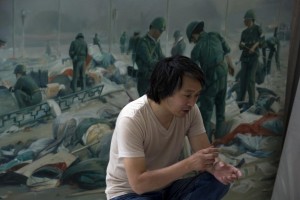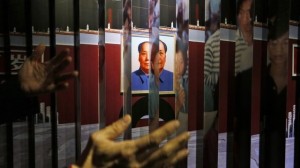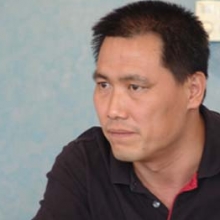They don’t scare easily, and they will take any client — not just dissidents. The Communist Party has noticed.
BY ALEXA OLESEN MAY 16, 2014
If there were a checklist for China’s “diehard lawyers faction” it would probably read something like this: Must be combative, dramatic, and have a flair for social media; must not be intimidated by authority; and must be willing to spend time under house arrest or in jail.
While there is no official group by this name, the term has evolved over the last few years to describe a particular type of criminal defense lawyer: brash, and determined to take on defendants whose rights, the attorneys believe, have been violated. The phenomenon came into sharp relief after the arrest of prominent Beijing lawyer Pu Zhiqiang (pictured above) on May 6 for allegedly “picking quarrels” by commemorating the victims of the June 4, 1989 crackdown on pro-democracy demonstrators in Tiananmen square in central Beijing. Pu remains in detention in Beijing, awaiting a hearing.
It all started with a case gone awry.
It all started with a case gone awry. Beijing lawyer Yang Xuelin, who identifies himself on social media website Weibo as a “diehard,” told Communist Party mouthpiece newspaper People’s Daily that the term originated from a discussion with another attorney in Guiyang, the capital of Southern China’s Guizhou province, in July 2012. Yang and a colleague named Chi Susheng were part of a team of lawyers from around China who had come to the city to defend a former property tycoon accused of gang-related crimes. Over lunch on the first day of the trial, the paper explained, Chi complained the trial was already not going well. It was riddled with procedural problems, she said, and the team was going to have to “firmly fight to the bitter end,” using the northern slang term sike — which roughly means to fight to the bitter end, or to die hard. (The tycoon was sentenced to 15 years in prison.)
Continue reading →



